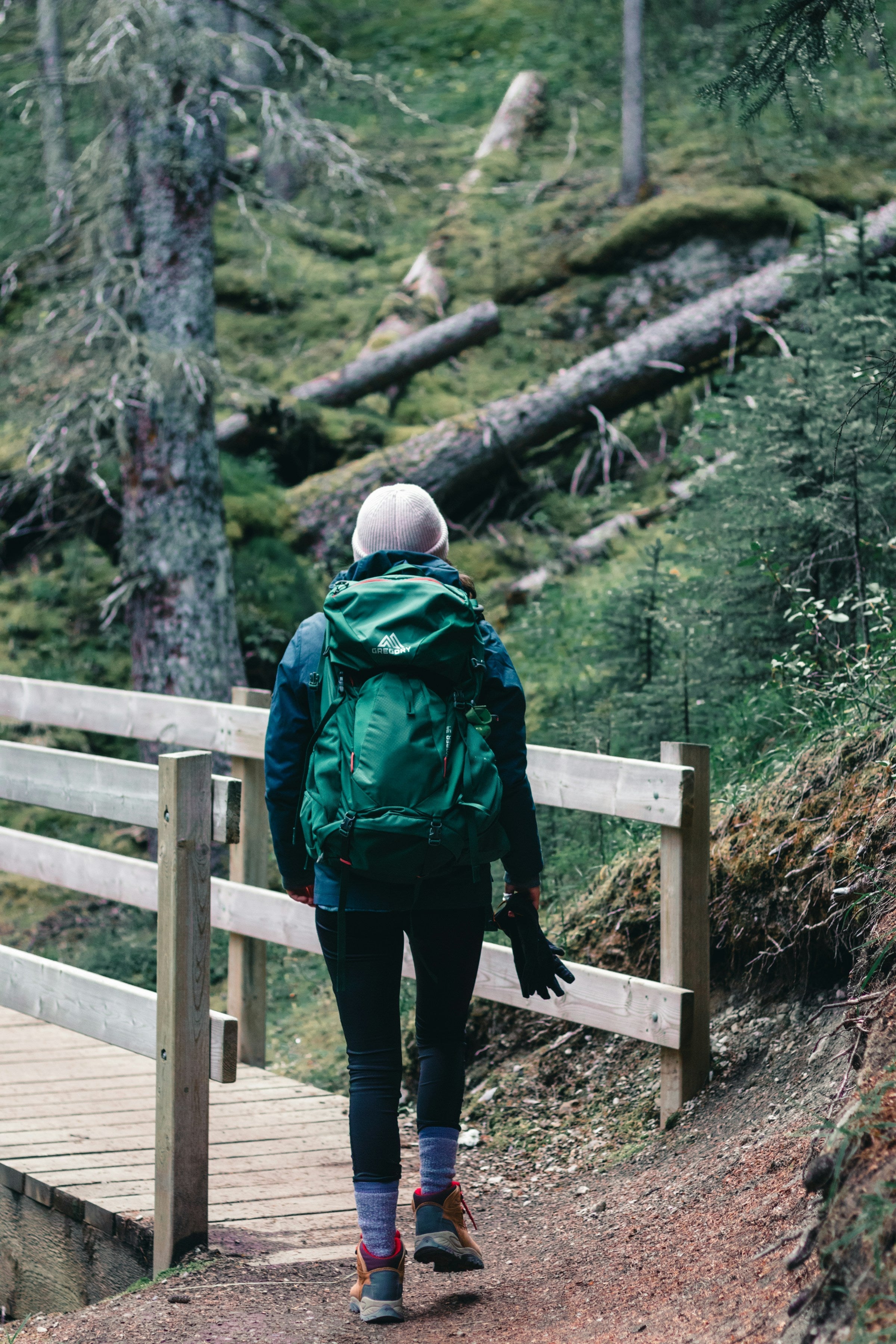
New to Backpacking?
Common Mistakes New Backpackers Make & How to Avoid Them
Introduction
Backpacking is an incredible way to connect with nature, explore remote landscapes, and challenge yourself physically and mentally. However, for beginners, the experience can be daunting, especially when small mistakes turn into major discomforts or even dangerous situations.
Many new backpackers learn the hard way—carrying too much weight, underestimating the trail, or not being prepared for unexpected weather. But you don’t have to make the same mistakes!
In this guide, we’ll break down the most common mistakes new backpackers make and how to avoid them, ensuring your next adventure is safe, enjoyable, and hassle-free.
1. Packing Too Much Weight
The Mistake:
One of the biggest errors beginners make is overpacking. Many first-time backpackers bring too many clothes, excessive food, heavy gear, and unnecessary gadgets. The result? A back-breaking pack that makes hiking miserable.
How to Avoid It:
- Follow the "Big Three" Rule: Focus on lightweight shelter, sleeping system, and backpack.
- Weigh all your gear before packing.
- Prioritize multi-use items (e.g., a buff can be a scarf, headband, and pillow).
- Stick to a gear checklist to avoid last-minute impulse additions.
Pro Tip: A good ultralight pack should be under 20 lbs (9 kg) without food and water.
2. Wearing the Wrong Footwear
The Mistake:
Wearing new, ill-fitting, or inappropriate shoes is a painful mistake. Many beginners assume regular sneakers or brand-new boots will do the trick—only to end up with blisters, sore feet, or worse.
How to Avoid It:
- Choose broken-in hiking boots or trail runners.
- Ensure your shoes have proper ankle support and grip.
- Wear moisture-wicking socks (avoid cotton!).
- Always test new shoes on shorter hikes before a big trip.
Pro Tip: Apply blister prevention tape (like Leukotape) on hotspot areas before starting your hike.
3. Not Testing Gear Before the Trip
The Mistake:
Many new backpackers hit the trail with brand-new gear they’ve never tested—only to find out their tent is missing stakes or their stove won’t light.
How to Avoid It:
- Set up your tent at home before your trip.
- Test your stove and fuel before heading out.
- Wear your backpack fully loaded on a practice walk.
- Ensure your water filter works properly.
Pro Tip: Do a backyard campout or overnight test hike to trial your full setup.
4. Ignoring Weather Forecasts
The Mistake:
New backpackers often underestimate how quickly weather changes in the wilderness. This can lead to being caught in storms, suffering from cold exposure, or dealing with heat exhaustion.
How to Avoid It:
- Check weather forecasts multiple times before your trip.
- Prepare for worst-case scenarios (rain gear for sunny trips, warm layers for cool nights).
- Learn basic weather signs (e.g., dark clouds = incoming rain).
Pro Tip: Always carry an emergency space blanket—it’s ultra-light and can save your life in cold conditions.
5. Underestimating Water Needs
The Mistake:
Many beginners don’t carry enough water or fail to plan for refilling. Dehydration leads to fatigue, dizziness, and dangerous situations.
How to Avoid It:
- Carry at least 2-3 liters of water per day.
- Use a water filtration system (Sawyer Squeeze, Katadyn BeFree).
- Research water sources along your route.
- In dry climates, cache water ahead of time if necessary.
Pro Tip: Electrolyte tablets help replenish lost salts and prevent dehydration.
6. Poor Food Planning
The Mistake:
New hikers often:
- Pack too much food, adding unnecessary weight.
- Bring food that requires complex cooking.
- Forget calorie-dense options and run out of energy.
How to Avoid It:
- Plan lightweight, high-calorie meals (~100+ calories per ounce).
- Stick to simple, no-cook or easy-cook options (instant oatmeal, ramen, tuna packets).
- Pack snacks you actually like (trail mix, protein bars, peanut butter).
- Always carry an extra day’s worth of food in case of delays.
Pro Tip: Test your trail meals at home—some freeze-dried meals taste awful!
7. Not Packing Proper Navigation Tools
The Mistake:
Relying only on a phone’s GPS (which can fail in the wilderness) or assuming trails are clearly marked leads to getting lost.
How to Avoid It:
- Always carry a map and compass (and know how to use them!).
- Download offline maps (Gaia GPS, AllTrails Pro).
- Mark key waypoints (water sources, campsites) before heading out.
- Tell someone your planned route and expected return.
Pro Tip: If lost, use the STOP method:
- Stop moving.
- Think about where you came from.
- Observe surroundings and map.
- Plan your next steps carefully.
8. Not Bringing a First Aid Kit
The Mistake:
Many beginners skip a first aid kit to save weight—only to regret it when they get a blister, cut, or muscle strain.
How to Avoid It:
- Carry a lightweight first aid kit with bandages, antiseptic wipes, ibuprofen, blister pads, and tweezers.
- Learn basic first aid skills (how to treat sprains, cuts, dehydration).
- Bring medications (allergy pills, anti-diarrheal, personal prescriptions).
Pro Tip: Blisters can ruin a trip—always pack Leukotape or moleskin.
9. Setting Up Camp in a Bad Spot
The Mistake:
Many beginners choose poor campsite locations, leading to flooding, wind exposure, or uncomfortable sleep.
How to Avoid It:
- Pick a flat, elevated area (avoid valleys where water collects).
- Camp at least 200 feet away from lakes and rivers.
- Avoid campsites under dead trees (widowmakers).
- Look for natural wind barriers (trees, rock formations).
Pro Tip: Test your sleeping area by lying down before setting up camp.
10. Overestimating Their Fitness Level
The Mistake:
Many first-time backpackers overestimate their endurance, planning 10+ mile days without considering elevation, pack weight, and terrain.
How to Avoid It:
- Start with shorter hikes (5-8 miles max per day).
- Train with your loaded backpack before the trip.
- Be realistic—it’s okay to adjust plans mid-hike.
Pro Tip: Follow the Rule of Halves:
If you’re exhausted halfway through, turn around immediately.
Final Thoughts
Backpacking is an incredible adventure, but learning from mistakes before they happen makes the experience safer and more enjoyable. By packing wisely, preparing for weather, choosing good footwear, and practicing navigation, you’ll avoid common beginner pitfalls and have an amazing trip.
Key Takeaways:
✅ Keep your pack weight under 20 lbs.
✅ Wear broken-in boots and moisture-wicking socks.
✅ Test all gear before your trip.
✅ Bring a map, compass, and offline GPS.
✅ Stay hydrated and plan food carefully.
✅ Train before tackling difficult trails.
By avoiding these common mistakes, you’ll hike smarter, feel better, and fully enjoy the beauty of the wilderness.
